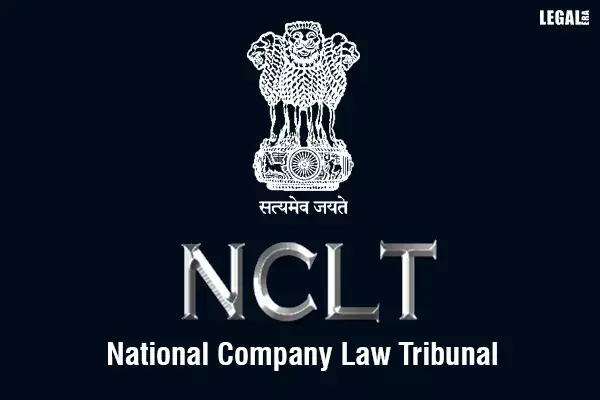NCLT Mumbai: Exclusion Of CIRP Petition Stay Period Does Not Delay Insolvency Commencement Date Under IBC
The National Company Law Tribunal ('NCLT') Mumbai bench comprising Justice V.G. Bisht (Retd.) (Judicial Member) and Mr.;

NCLT Mumbai: Exclusion Of CIRP Petition Stay Period Does Not Delay Insolvency Commencement Date Under IBC
The National Company Law Tribunal ('NCLT') Mumbai bench comprising Justice V.G. Bisht (Retd.) (Judicial Member) and Mr. Prabhat Kumar (Technical Member), has ruled that the exclusion of the period of stay of a Corporate Insolvency Resolution Process (CIRP) petition does not result in the postponement of the insolvency commencement date under the Insolvency and Bankruptcy Code, 2016 (IBC).
Reliance Communications Limited (the corporate debtor) defaulted on loan repayments to China Development Bank (CDB) and other Chinese lenders (respondents). Subsequently, CDB initiated a CIRP under Section 7 of the IBC. In 2017, Indian lenders, led by the State Bank of India (SBI), formed a Joint Lenders' Forum and signed a TRA Agreement to manage the corporate debtor's cash flows.
The lenders contemplated an asset monetization process (AMP) to sell the corporate debtor's assets. CDB and other Chinese lenders demanded USD 200 million to consent to the AMP and withdraw the CIRP petition. SBI issued a no-objection letter (NOC) allowing the corporate debtor and Reliance Telecom Limited (RTL) to raise USD 200 million on an unsecured basis to pay off the respondents.
On December 29, 2017, the corporate debtor and RTL raised approximately USD 184 million from five unsecured creditors and made payments to the respondents. The term sheets indicated that these funds were for the said payments but did not specify the recourse of the unsecured creditors in case the AMP failed, contrary to what was stipulated in the SBI NOC. Consequently, the liability for these unsecured loans was reflected in the corporate debtor's books.
As the AMP failed, Ericsson India Pvt. Ltd. (the operational creditor) initiated a CIRP against the corporate debtor on May 15, 2018. On May 7, 2019, NCLT Mumbai directed the Interim Resolution Professional (“IRP”) to take control of the corporate debtor's assets, including the TRA, and inform the financial creditors. Mr. Anish Niranjan Nanavaty (the Applicant), the Resolution Professional (“RP”) of the Corporate Debtor, was required to honor the term sheets and admit the claims of the unsecured creditors as financial creditors.
The RP filed an application before NCLT Mumbai asserting that the Rs. 117 crores paid to the respondents before the commencement of the CIRP constituted a preferential transaction under Section 43 of the IBC. He sought a declaration of the payment of Rs. 117 crores as a preferential transaction and requested CDB to refund Rs. 93.82 crores and the other Chinese lenders to refund Rs. 23.45 crores to the corporate debtor.
The RP contended that the payment of Rs. 144 crores by the corporate debtor to the respondents and the transaction occurred between May 15, 2017 and May 15, 2018, falling within the one-year lookback period under Section 43 of the IBC.
However, the respondents argued that the insolvency commencement date should be May 7, 2019, making the said transaction fall outside the lookback period under Section 43 of the IBC.
The NCLT Mumbai dismissed the application and determined that the exclusion of the stay period of the CIRP petition does not lead to a postponement of the insolvency commencement date under the IBC.
The Tribunal highlighted that Section 5(12) of the IBC defines the "insolvency commencement date" as the date on which the adjudicating authority admits an application to initiate the CIRP under Sections 7, 9, or 10 of the IBC.
It was noted that while the admission order for the corporate debtor was passed on May 15, 2018, it was stayed by the NCLAT and subsequently vacated on April 30, 2019. During this period of stay, the corporate debtor's management reverted to its previous state under the erstwhile management. Consequently, upon the vacation of the stay, the NCLAT directed the commencement of the CIRP on May 7, 2019, and NCLT Mumbai permitted the acceptance of creditor claims as of that date.
The Tribunal also referred to the Supreme Court's decision in Shree Chamundi Mopeds Ltd. v. Church of South India Trust Assn., elucidating that a stayed order remains in existence but is suspended.
NCLT Mumbai emphasized that the Order dated May 30, 2018 indicated the stay on the admission order by the NCLAT, during which the RP continued to hold office without powers or duties. Additionally, the order dated May 9, 2019 clarified that the exclusion was granted in consideration of the stay on the admission order. Therefore, the insolvency commencement date unequivocally remained as of the admission order date of May 15, 2018.
Conclusively, the Tribunal affirmed that the insolvency commencement date, defined by the IBC, stands as of the admission order date of May 15, 2018.

